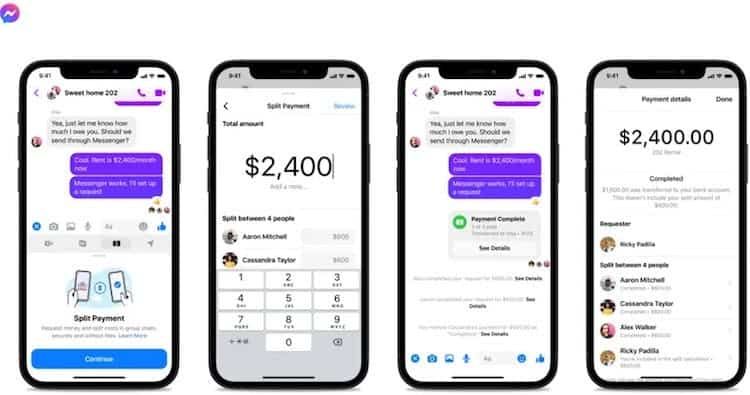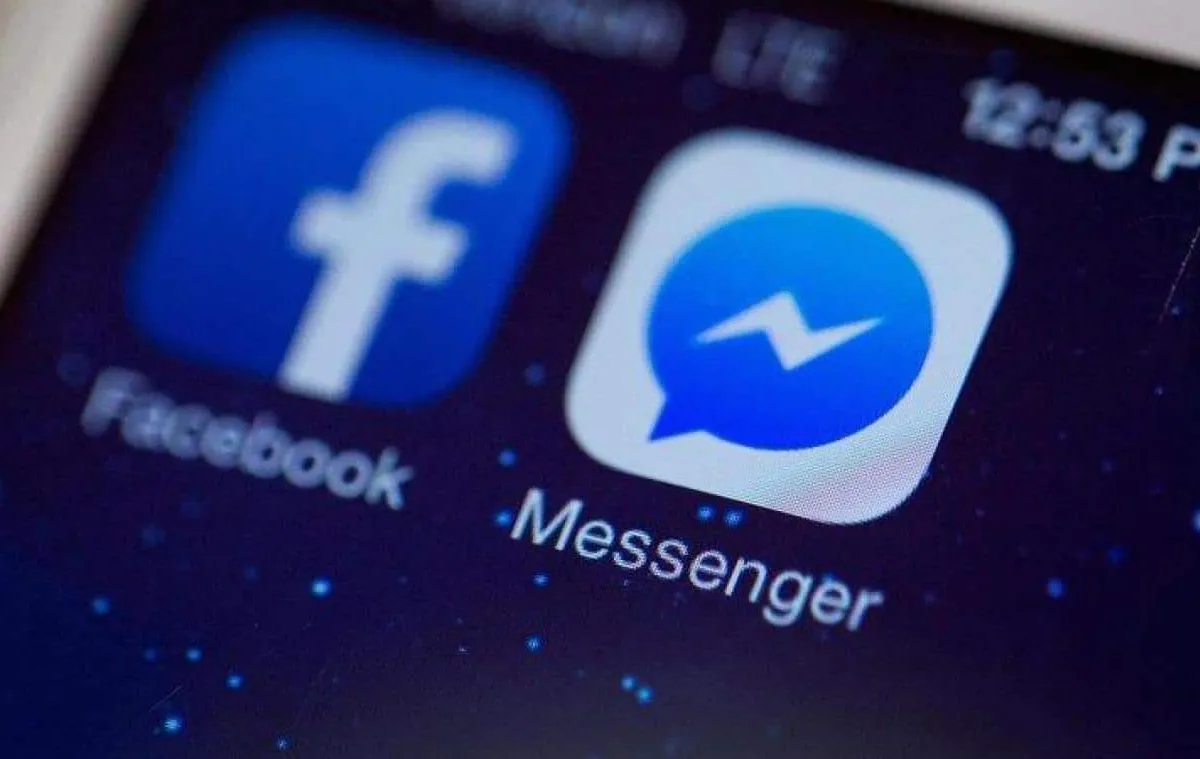Meta announced the introduction of a built-in bill splitting feature in its proprietary messaging app Facebook Messenger. Its testing will begin in the US next week. The company believes that this feature can be useful in situations such as splitting a bill at a restaurant or paying rent with roommates.
Facebook Messenger will get built-in bill splitting feature
With the help of the new function, users will be able to ask people for money right in the group chat and see who has already paid for their share. Meta has also added new augmented reality effects that Facebook Messenger and Instagram users can use during group video calls. Three of them, including one that simulates buffering, are available now, and another will be available on December 6th.
As a reminder, Meta recently introduced sound emoji for branded applications. Two of them are inspired by Stranger Things, which will release a new season next summer, and one plays an excerpt from Red's Taylor Swift.

Facebook will make two-factor authentication mandatory for high-risk users
Social networking site Facebook said it will make two-factor authentication mandatory for the most vulnerable accounts. The move is part of the Facebook Protect initiative, which aims to protect the accounts of people at high risk; such as politicians, journalists and human rights defenders.
Facebook Protect launched in 2018 and expanded ahead of the 2020 US elections. It offers more robust security measures for accounts at increased risk of hacking; including two-factor authentication and other account protection tools, including monitoring potential hacking threats. According to Facebook, more than 1.5 million users are already eligible to participate in the program. By the end of the year, residents of more than 50 countries will be able to take advantage of Facebook Protect.
Of the 1.5 million people connected to Facebook Protect, about 950,000 use two-factor authentication. However, the social network believes that it should be used by all high-risk accounts; therefore making it mandatory for such accounts. This means that if a user identified by Facebook as being at high risk does not activate two-factor authentication after a set period; they will not be able to access their account. The social network claims that users will not lose access to their accounts forever; but only until they activate two-factor authentication. According to Facebook, this is a key element of online security that should not be discussed; especially in the case of public accounts.
Facebook said more than 90% of high-risk users on the Web used the feature in its early testing phase of forced activation of two-factor authentication.






Place comments
0 Comments
You are currently seeing only the comments you are notified about, if you want to see all comments from this post, click the button below.
Show all comments